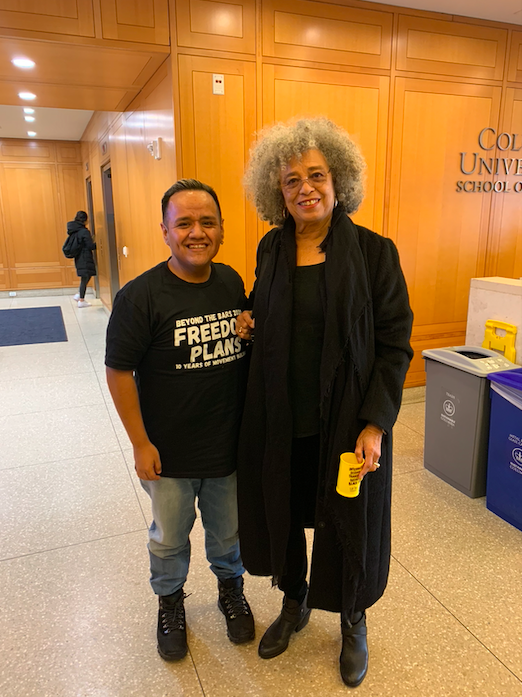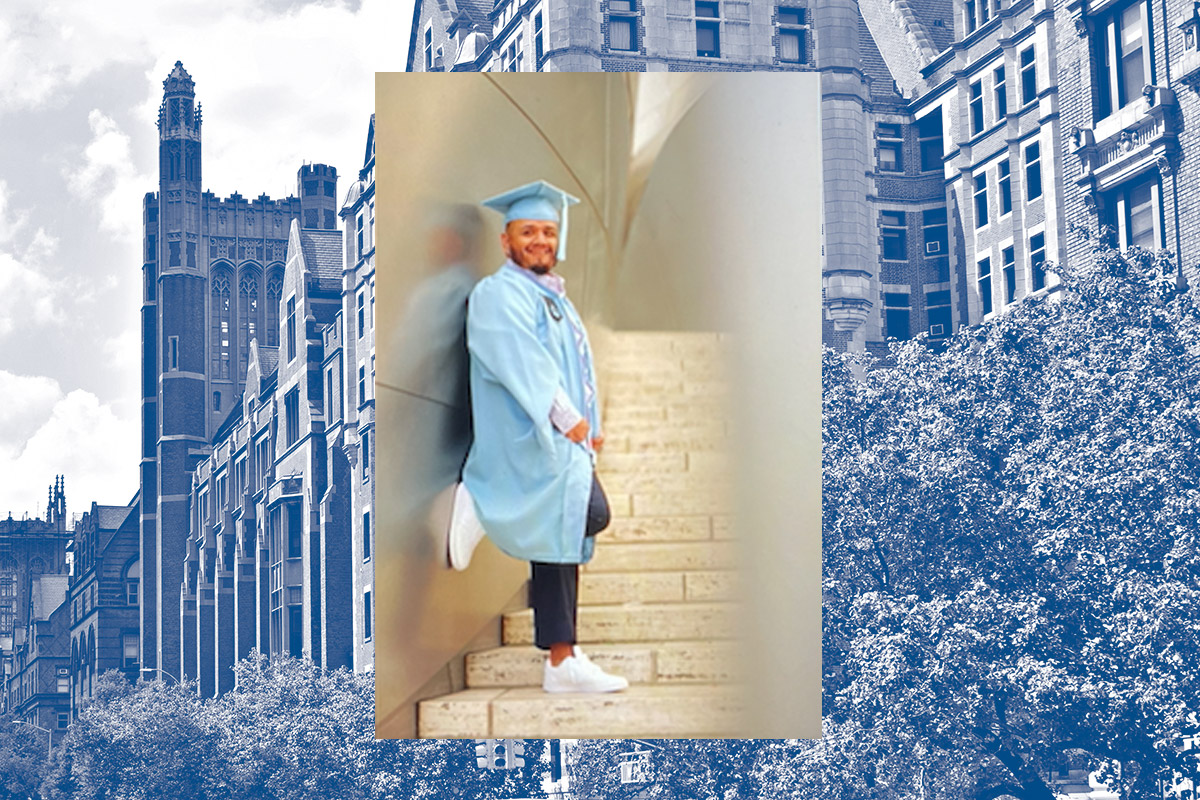This coming fall, when Armando Lizarraga, 38, begins his Ph.D. studies in Higher Education Leadership at the University of Texas at Austin’s College of Education, he’ll offer his students — and anyone else within earshot — the advice he’s repeatedly given himself since beginning his academic career in earnest: “Let them tell you no; don’t tell yourself no.”
For years, Lizarraga told himself very little about education at all. Growing up in Los Angeles, “I was raised in a home where domestic violence and alcoholism were the norm,” says Lizarraga, who is receiving his master’s degree in Higher & Postsecondary Education. “It really impacted my education.”
When he was 10, his father went to prison, leaving his mother to support three children and igniting in Lizarraga tremendous anger. He graduated high school with a GPA below 2.0 and spent the following two and a half years at a local community college, where he got Ds and Fs.

PAIRING ACADEMICS AND ACTION Armando Lizarraga with the political activist, philosopher, academic and author Angela Davis. (Photo courtesy of Armando Lizarraga)
Bored, discouraged and itching to make money, Lizarraga dropped out and spent the next 10 years working at a bank. He had no thought of excelling or advancing, but a coworker saw his potential and began prodding him to reconsider community college. After a few years, Lizarraga took his advice and entered El Camino College, a two-year institution near Torrance, California. There he got involved in a mentoring program that led him to transfer to UCLA, where “I took advantage of anything and everything they had to offer,” he says.
Graduates Gallery 2021
Meet some more of the amazing students who earned degrees from Teachers College this year.
The summer between community college and UCLA, for example, he won a scholarship to take part in a class where he participated in a study of Mendez v. Westminster, the landmark 1947 school desegregation case tried in a federal court of appeals that is considered a precursor to the U.S. Supreme Court’s 1954 ruling in Brown v. Board of Education.
Majoring in Chicana/o Studies and Sociology at UCLA, Lizarraga researched the pipeline between community colleges and four-year universities, focusing on differences in resource allocation between the two kinds of institutions. He spent a summer in Amsterdam, analyzing the low numbers of immigrant men pursuing higher education in the Netherlands. Back at UCLA, he probed the lack of representation of Latinx men in higher education.
I’m a product of community colleges, I’m a big advocate of community college, of de-stigmatizing community colleges.
—Armando Lizarraga, M.A. ’21, Higher & Postsecondary Education
Lizarraga also paired his academic endeavors with action, coordinating a conference on community college transfer that remains the largest academic conference ever held in the University of California university system. He also served as a peer mentor for community college transfer students.
At TC, where he arrived in the fall of 2019, Lizarraga has built on his understanding of community colleges as critical transitional spaces between high school and four-year colleges for many students like him, who might need extra time and mentoring before they can see themselves as college material.
“I’m a product of community colleges, I’m a big advocate of community college, of de-stigmatizing community colleges,” he says.
He got a job at TC’s Community College Research Center assisting with research related to student support services, instructional quality and equity at community colleges. Lizarraga has served on the board of the Coalition of Latinx Scholars at TC and as a member of the Higher Education and Post-Secondary Education Association. He also worked as an entry-level social worker and GED instructor of undocumented people in East Harlem. Mindful of his own family’s experience with the penal system, he landed a fellowship with the Beyond the Bars project at Columbia, which promotes deeper understanding of the causes of mass incarceration.
“I came to TC with a checklist, and I’m walking away from TC doing everything that I came in wanting to do, and more,” he says, citing strong encouragement from Noah Drezner, Professor of Higher Education; Thomas Brock, director of the Community College Research Center; and Katharine Conway, Associate Professor of Higher & Postsecondary Education, Vice President for Planning and Strategy, and Secretary of the College.
Working remotely from Los Angeles after the COVID pandemic hit, Lizarraga kept on researching community college counseling programs and even continued his work tutoring adult GED students in East Harlem.
I came to TC with a checklist, and I’m walking away from TC doing everything that I came in wanting to do, and more.
—Armando Lizarraga, M.A. ’21, Higher & Postsecondary Education
Lizarraga’s ultimate goals are to become a professor, engage in research involving equity of opportunity and access in higher education, and build and maintain a nonprofit organization that will serve as a bridge to academia for those who — just like himself not so long ago — cannot imagine themselves going to college.
For Lizarraga, those plans are about more than just paying things forward. There’s a ripple effect to think about, too. After all, if he had told himself no before applying to El Camino College or UCLA, or before asking for his job at CCRC, or applying to UT Austin, he might be doing something quite different. And that would mean he would never be available to help the next struggling student think differently about the possibilities in life.
